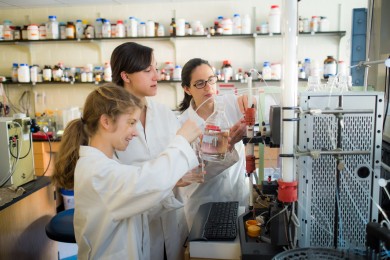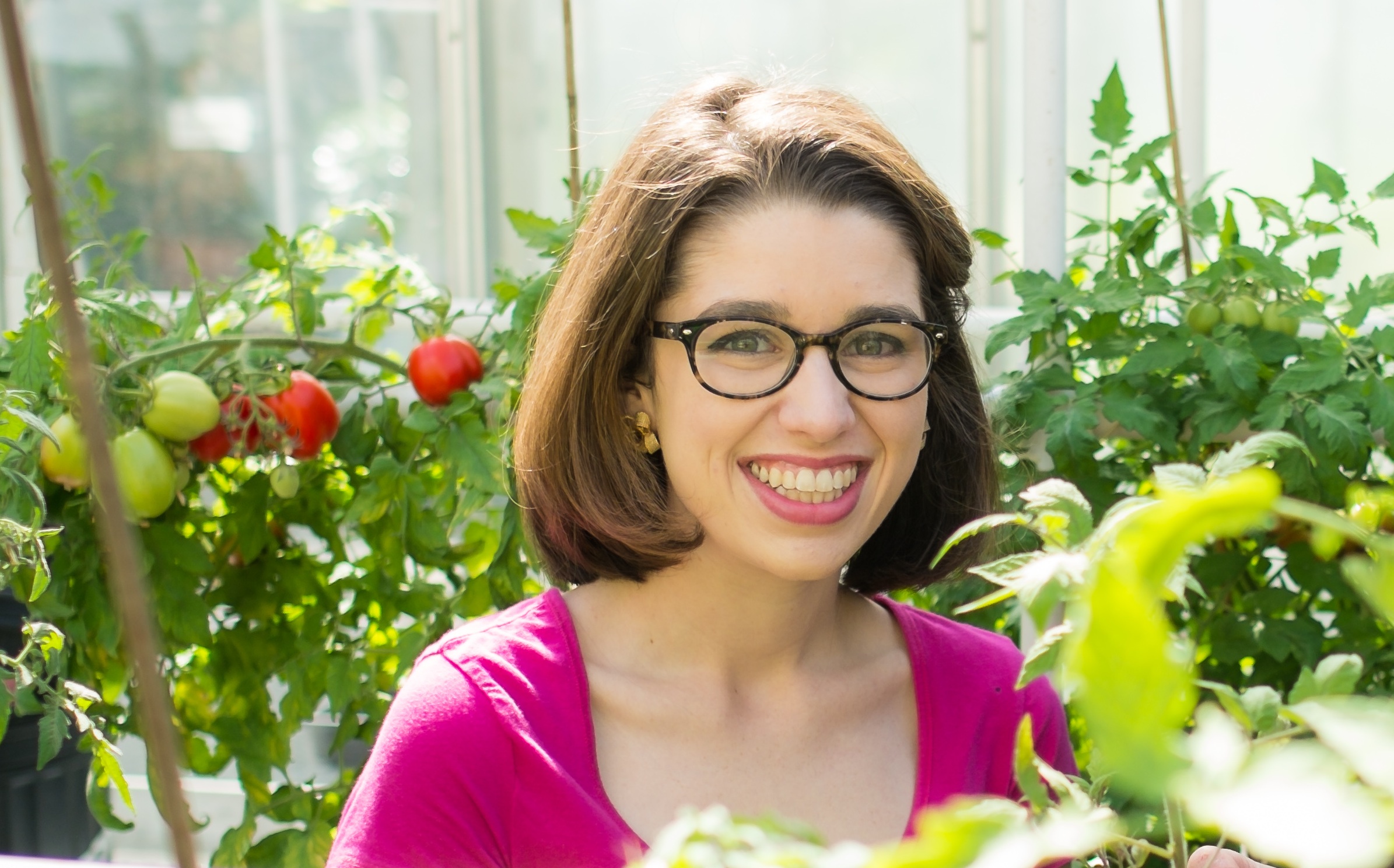Beating bad bacteria
The notion that trillions of bacteria are packed into the human body is enough to give anyone the heebie jeebies.
But not all bacteria are bad, said Hannah Martin, a rising sophomore. On the contrary, there are many types of good bacteria that help humans digest food, process vitamins and minerals and protect the body from disease and infection.
Martin and Patricia Dos Santos, an associate professor of chemistry, are tackling the problem of how to target harmful bacteria while sparing beneficial bacteria that make it possible for humans to live healthy lives.
“The problem with potent antibiotics is they can’t tell the difference between bad bacteria that is causing an infection and the good bacteria your body needs,” Martin said. “Our research could help scientists develop new drugs and antibiotics that only target the bad bacteria.”
Martin’s work focuses on diseases-causing “Gram-positive bacteria,” which are associated with everything from strep throat to tuberculosis. She is using a biochemical technology to identify enzymes involved in essential reactions in these microbes.
The hope is that identifying these specific enzymes will help pharmaceutical researchers develop drugs that target Gram-positive bacteria without harming anything else.

Wake Forest sophomore Hannah Martin (’17) conducts an experiment with chemistry professor Patricia Dos Santos and graduate student Katherine Black (’11).
“To date, no one has been able to identify these enzymes in the organism Hannah is studying,” Dos Santos said. “The project is just getting started but definitely has the potential to advance scientific understanding in a very profound way.”
Getting an early start
Martin is one of two Wake Forest students awarded a grant this year through the Arnold and Mabel Beckman Foundation.
Established in 1997 by the famed scientific innovator and inventor Arnold O. Beckman, the Beckman Scholars Program provides exceptionally talented scholars at select universities with funding to pursue research and training in the fields of chemistry, biochemistry, physics and the biological and medical sciences.
The Beckman program will provide Martin funding to conduct research for 15 months. In addition, she will travel to Germany next summer to present her research.
Dos Santos said the biggest benefit of the Beckman is that it gives Martin an immersive research experience as an underclassman that is otherwise hard to come by.
“Hannah is only a sophomore. This gives her the opportunity to take her understanding to the next level at an early stage in her career,” Dos Santos said. “The Program also gives me the time to build a long-term relationship with an exceptional, young female scientist which I am very grateful for.”
For her part, Martin said she is happy to have the unique opportunity to learn about upper -level chemistry firsthand in a laboratory.
“I think this experience will go a long way toward making me a more competitive applicant for graduate school,” Martin said. “I am so grateful to have this opportunity.”
Categories: Experiential Learning, Leadership & Character, Mentorship, Personal & Career Development, Pro Humanitate, Research & Discovery
Media Contact
Wake Forest News
media@wfu.edu
336.758.5237




